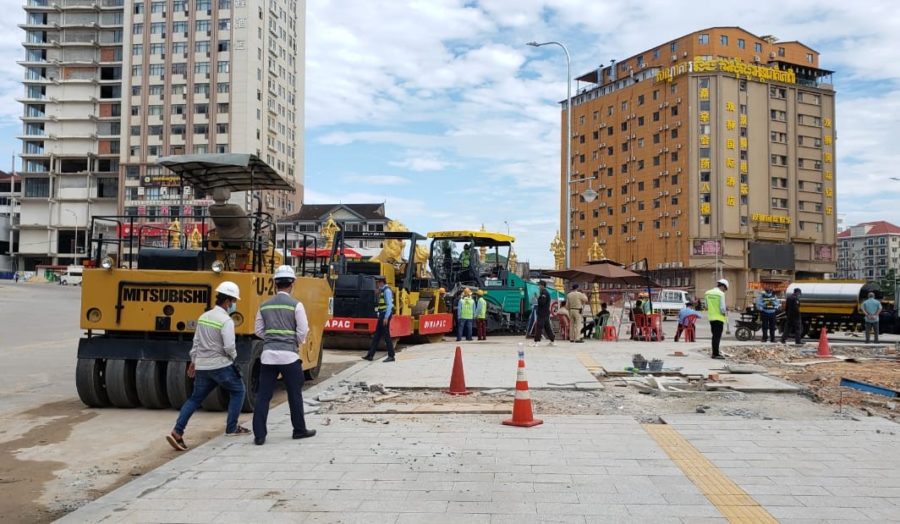A policy of “using palm leaves to package palm sugar” will help the government save costs amid a decline in revenues due to Covid-19 — in other words, using available resources like swapping state land with investors to support needs like road-building, an official said.
According to the Finance Ministry’s 2021 national budget document, national-level revenues are expected to drop 14 percent from about $7.6 billion to $6.6 billion. Expenditures will fall just 2 percent, from about $7.8 billion to $7.6 billion, it says.
Spending on “investment projects” — categorized under miscellaneous expenditures that do not fall under any ministry — is set to be the biggest item at just over $1 billion, increasing about $81 million from the year before.
Public works and transport sees the biggest fall, its budget dropping by just over $200 million to about $600 million.
The government said in a statement that it would spend savings as well as make deals, especially in Sihanoukville, to prop up the budget.
“Financing through ‘using palm leaves to package palm sugar,’ for restoring investment and infrastructure in Sihanoukville, will transform Sihanoukville to become a modernized city and become a multisector [economy],” it said.
Government spokesperson Phay Siphan said the “palm leaves” policy was about getting cooperation from the private sector using existing resources, and included giving land to businesses and receiving both investment and infrastructure in return. He said it works, benefits both sides, and was not irregular.
Siphan added that the budget for investment projects was a reserve fund available to pay for urgent projects, possibly including emergency food and health responses.
This year has seen a series of land allocations, including lakes and forests, to tycoons and the families of the prime minister and other government officials, raising questions of transparency and accountability. Siphan previously said that some state land given to private investors in Preah Sihanouk was likely sold to pay for roads.
Transparency International executive director Pech Pisey said he was concerned about the gap between spending and revenue — a shortfall of almost $1 billion, which would likely need to be covered by development partners and borrowing from foreign countries.
“We have a double crisis of Covid-19 and partial withdrawal of the EBA, and we have unemployment, the closing of many factories and enterprises, especially in the tourism sector,” he said, referring to the E.U. suspending trade benefits this year over human rights concerns.
It was important to support small and medium-sized businesses to help livelihoods and restore tax revenues, he said.
Pisey added that he hoped the government would transfer some defense spending for social services during the crisis.
The government statement on the budget said the first priority was “to maintain peace, political stability, security and public order,” and it would work to protect people’s livelihoods and promote an economic recovery.
“Cambodia must turn this crisis and these challenges into an opportunity to speed up the reform of all sectors, more deeply and more concretely than before, especially daring to cut down on chronic structural problems to improve and facilitate commerce, and make it convenient to make investments and do business, for both local and outside investors,” the statement said.
Major increases in the 2021 budget include telecommunications, more than doubling from a low base to about $65 million.
Siphan said last week that Cambodia needed to keep up with digital advances.
“We operate everything digitally now, so we strengthen the digital and telecommunications systems to make it faster and effective,” he said.
Education and health spending drops sharply, but is compensated by a new $206 million item on decentralizing education and health.













